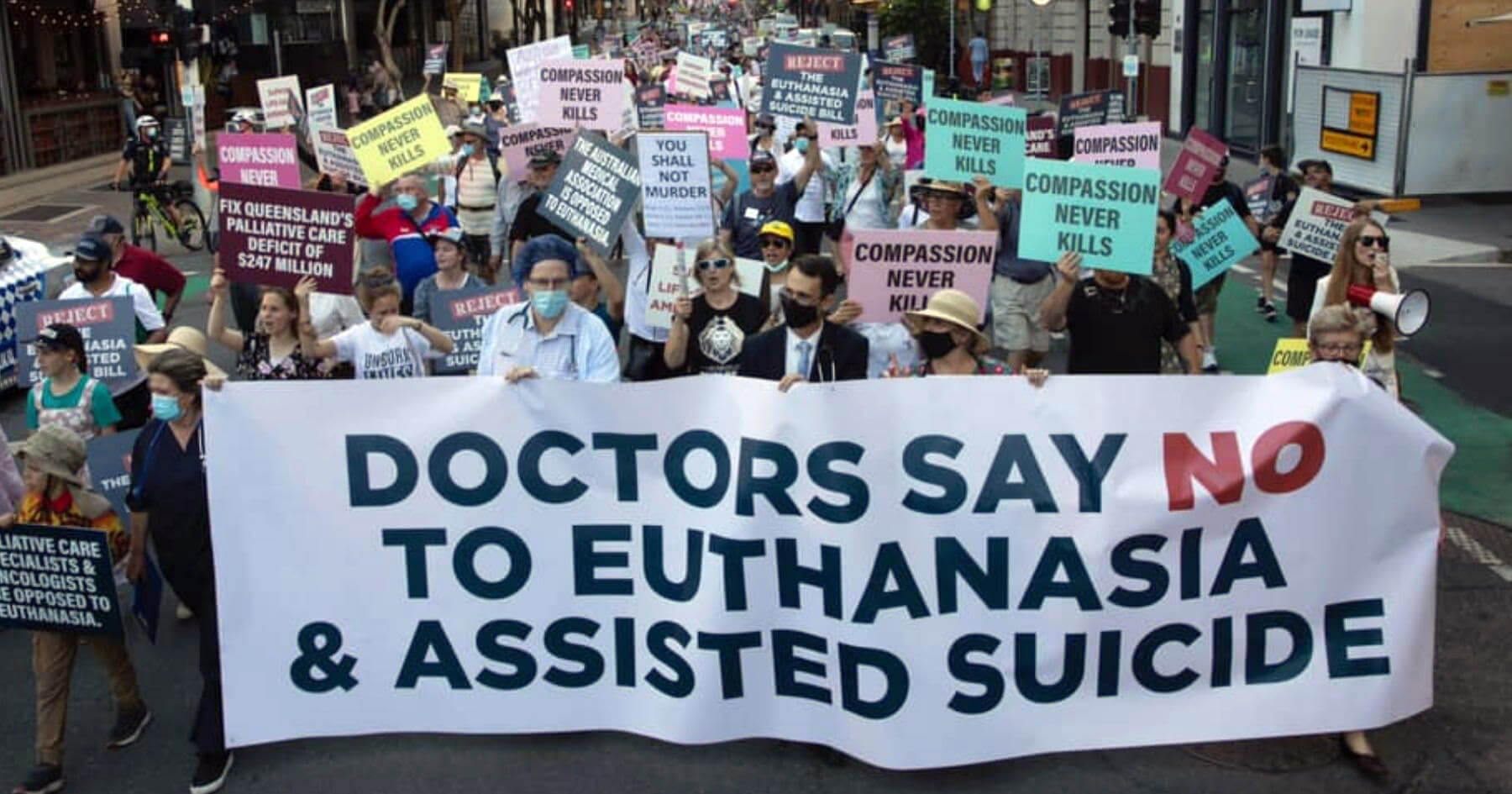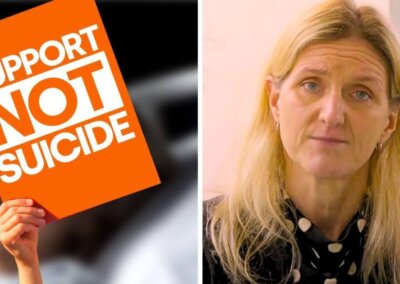Queensland has become the fifth state in Australia to pass legislation that permits assisted suicide and euthanasia.
Despite public opposition, the Queensland Parliament passed a Bill to introduce assisted suicide and euthanasia to the State vote. 61 MPs voted in support of introducing assisted suicide and euthanasia as opposed to 30 who voted against.
Ahead of the vote, hundreds of people protested against the proposed legislation demanding that further funding be made available for palliative care as an alternative to assisted suicide and euthanasia.
Under the new legislation, those who are thought to have 12 months or less to live will be able to end their own life through an assisted suicide or euthanasia. In other jurisdictions in Australia, assisted suicide laws only apply to those with 6 months or less to live.
The leader of the opposition, David Crisafulli, Liberal National Party MP, voted against the law pointing out that the law permits those with 12 months left to live the option of an assisted suicide, but palliative care is only available to those with 3 months left to live.
Mr Crisafulli said: “I believe the intention of the bill is to offer choice, but the reality is that it offers choice on a sliding scale that is in proportion to the size of your bank account or where you live,” he told parliament earlier in the week”.
“While my heart hurts for people facing great pain and terminal illness, I can’t assist them to die via flawed legislation”.
“I can’t support something that offers the assistance of the state to terminate their life, the same state that does not give them the option of specialist palliative care in the same time frame”.
Assisted suicide in the UK
Baroness Meacher’s assisted suicide Bill received its first reading in the House of Lords earlier this year, only six years after a similarly worded assisted suicide Bill was defeated by an almost three to one majority in the Commons.
Baroness Molly Meacher is Chair of the pro-assisted suicide group, ‘Dignity in Dying’. A Second Reading will take place in October.
The Bill follows the Marris-Falconer Assisted Dying Bill (2015), which was defeated by a majority of 330 to 118 MPs.
Strong opposition to assisted suicide
Polling released earlier this year showed that only 35% of MPs support introducing assisted suicide to the UK.
The lowest support for assisted suicide was among Conservative MPs, with only 30% supporting a law change along these lines. The Conservative Party currently has an eighty-three seat majority in the House of Commons.
In 2020, strong opposition from MPs resulted in the Government rejecting an earlier call for a review of the law on assisted suicide, despite the best efforts from large pressure groups in favour of its legalisation.
Opposition to assisted suicide by disability groups
All major disability rights groups in the United Kingdom including Disability Rights UK, SCOPE, United Kingdom’s Disabled People’s Council, and Not Dead Yet UK oppose any change in the law.
In 2020, the Royal College of Physicians released a statement on its website clarifying that it does not support a change in the law on assisted suicide.
The Royal College of General Practitioners announced in February 2020 that it will continue to oppose a change in the law on assisted suicide, following a consultation of its 50,000 members.
Right To Life UK spokesperson, Catherine Robinson, said: “The new assisted suicide legislation is a real blow to the state, especially to its most vulnerable citizens who will be targeted by this law”.
“Earlier this month, MPs and members of the House of Lords heard from a number of doctors from jurisdictions that had already legalised assisted suicide and/or euthanasia. They all said the same thing: without exception, in every jurisdiction that has legalised assisted suicide, the law is very likely to expand”.
“It often starts only applying to a restricted few who are close to death, and soon enough it applies to others. In Belgium, the legislation has extended to children under certain circumstances; in Canada the law is no longer restricted to those who are terminally ill. Sadly, we can expect Queensland to go the same way”.












